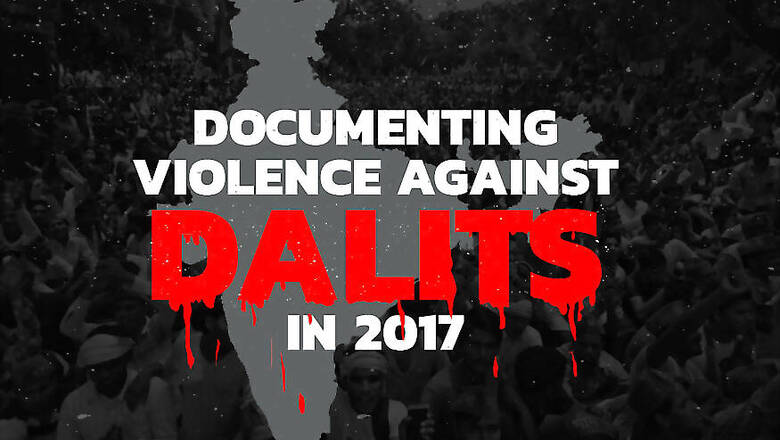
views
#BeingADalit is a series on what it takes to be a persecuted minority in India. In an attempt to go beyond the numbers, News18 also mapped incidents of Dalit atrocities over the last one year across India.
In India, a crime is committed against Dalits every 15 minutes.
The National Crime Records Bureau (NCRB), which gathers data about different crimes in the country, revealed that Uttar Pradesh reported the highest number of atrocities against Dalits in 2016. Out of all the reported crimes reported in the state, 26% of them were committed against Dalits.
Once the fortress of Mayawati, the Bahujan Samaj Party (BSP) supremo, and the land of the Rani of Jhansi, heroine of the 1857 uprising against the British, Uttar Pradesh has long been vexed in caste stigma and Dalit atrocities.
The rigid caste-based society in Uttar Pradesh continues to observe archaic traditions that still focus on humiliating the backward classes in every possible way, and at the epicenter of this spiraling landscape of caste violence are the rural areas.
For this story, News18 partnered with Khabar Lahariya, a digital media organisation working out of Bundelkhand with an all-women network of reporters, most of whom are Dalit.
Mirzapur’s Dalit woman pays a terrible price, wins election but loses daughter
In December, life seemed to be on track for Sunita. She had just won the Block Development Council (BDC) election from her village in Mirzapur district. As a Dalit woman and single mother of two children, she was providing for her son’s medical treatment and her 16-year-old daughter’s education. Sunita had lost her husband 15 years ago to alcoholism. But she had managed to eke out a living as a construction worker to run her household.
However, on the night of December 22, everything changed in her life. Her 16-year-old daughter, Rita was allegedly gang-raped by people from the same village.
It all started before the BDC elections. Sunita says she was threatened by one of her opponents called Shyam in the election. “He repeatedly told her not to run for elections and if she did, something bad would happen to her. He told her that she wouldn’t be allowed to win,” Sunita’s father Ram said.
On December 22, Sunita’s daughter, Rita was with her grandmother inside the other room. Around midnight, Ram woke up and went inside the house to check. To his surprise Rita was gone. Worried, he woke up the household. A search party, including the family and neighbours, fanned out into the village looking for her. She was nowhere to be found.
Minutes later, they called on her mobile. The ringtone blared out from a field nearby, its loud tune piercing the silent night. When they traced the mobile, they found Rita lying unconscious. Her clothes were torn in places, and her body covered in blood stains.
“We picked her up and brought her home, wrapping her up in a blanket. We splashed cold water on her face; she woke up for some time, gasping for air,” Ram said.
Rita told her family that two men, Pappu and Bindu Beheria, abducted her and took her to Basvani. In the fields, they tied up her hands and mouth, and tore her clothes. They made her dance and then, raped her.
“The next day, we to the police station at Paladi. The police refused to lodge an FIR. They didn’t even send her for a medical examination. We weren’t even allowed to leave the police station,” Ram said.
According to Sunita, the police subjected her 16-year-old daughter to abrasive, insensitive questioning.
“They interrupted Rita’s testimony multiple times, asking her to describe exactly what the accused did and how,” Sunita said.
Sniggering behind their questions, they suggested that Rita should simply agree to a settlement.
The next day, Pappu and Bindu’s relatives came to Sunita’s home, asking her to settle the case outside the police station. When the family refused to cooperate, they returned to plead and beg. Rita left the room, pretending to be sleepy. Sometime later, her grandma walked into the room, and found her hanging from the ceiling. When Additional District Magistrate Ratnapriya visited Sunita, she asked her to demonstrate how her daughter had hanged herself.
A case was registered at the Paldi Thana under sections 376, 306, and 452 of the IPC. Both Pappu and Bindu are behind bars now but Rajkumari has lost the will to live.
The day a toothbrush got Lallu murdered
Mahui village is located in Deoria Tehsil of Deoria district, Uttar Pradesh. The morning of Christmas 2016 turned out to be the opposite of merry for Lallu Prasad. Prasad, a Dalit, happened to break part of the branch of a neem tree that was growing outside his neighbour Thakur Singh’s house.
Lallu’s reason for doing so was to fix a toothbrush out of it, a datoon.
“But this got Thakur extremely worked up,” onlookers who were witness to the incident said.
Accusing Lallu of stealing and trespassing, Thakur’s rage passed on to his sons, Ram Lakhan and Shiv Vilas. It took only a few more seconds for Lallu to be at the receiving end of a severe thrashing by the brothers.
Lallu’s family, who’d been told about what was transpiring, ran to the spot just in time to see Thakur Singh pick up his rifle.
“He shot four times at Lallu and two of those bullets hit him in the waist,” one of the family members who wished to remain anonymous said.
Members of Lallu’s family dialed 100 immediately, but Ram, Shiv, and the father had all fled by then. Lallu succumbed to his gunshot wounds en route to the hospital.
Lallu’s brother, Ram Kishore, told Khabar Lahirya about how he thought he could help his brother, and how he failed to do so.
Since then, Thakur’s family is threatening Lallu’s family.
What’s more, even the village pradhan, Sumitra, is facing threats. “I need to protect my people, but look at the situation here. I’m being threatened too,” Sumitra said.
After visiting Mahui two weeks later for the follow-up, Khabar Lahariya learned that the accused were all on the run. Since then, the episode itself has become part of the ‘folklore’.
“It was a land issue,” a resident said. “These Thakurs won’t even let anyone bury dead bodies there. There’s no respect for the dead.”
In the same village, Dalits often complain about the discrimination they face over water. “They shoo you off saying you need to get your water at the community hand pump,” a villager said.
Lallu’s father Dvarka Ram said that he always knew Thakurs could get away with murder.
The curious case of the cook in Lalitpur
Hard lines are drawn along castes in Bundelkhand villages often give birth to bizarre situations such as this one – a cook who cooks, but no one eats her food.
Deep in the innards of the heartland where jaati-dharam have ruled hearts, minds and souls for eons, the lines are hardened along caste, etched in stone.
One such case of ugly discrimination – bizarre even in how it played out – is in the badlands of Bundelkhand, at the primary school in Madavra village in the district of Lalitpur, where Usha was appointed as a cook. Since she’s Dalit, nobody is willing to eat the food she cooks.
Usha was appointed as the school cook five years ago but has cooked for the school only once in all those years.
“Nobody eats it. I understood why. Now, I don’t cook anymore here,” Usha said. “What’s the point of wasting all the supplies?”
But she had to keep a job, and by default, took on the other work – “jhaado poncha, bartan dhona”. Usha remained an employee of the school but is a cleaning lady today.
Naina Jain, the teacher-in-charge, confirmed this to Khabar Lahariya. Nonplussed at the discrimination being actively practised around her she brushed away Usha’s concerns.
“It’s just the way it is,” she said.
(Some names have been changed to protect identity)
(#BeingADalit is a series on what it takes to be a persecuted minority in India. In an attempt to go beyond the numbers, News18 also mapped incidents of Dalit atrocities over the last one year across India. http://www.news18.com/news/immersive/documenting-violence-against-dalits-one-assault-at-a-time.html)













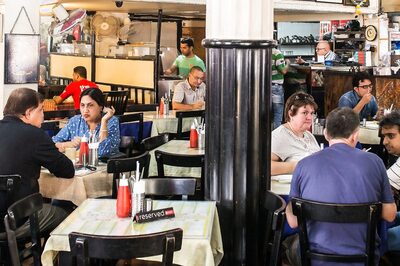
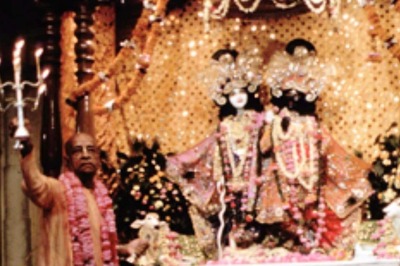


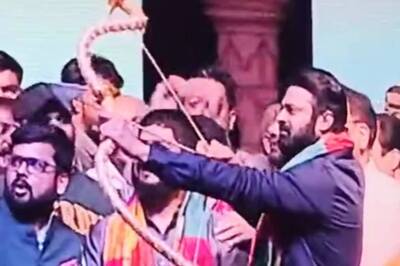
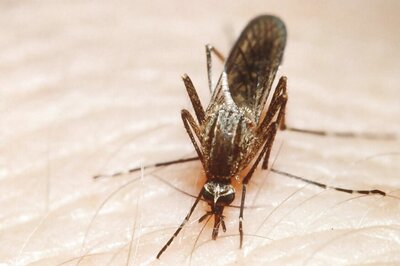
Comments
0 comment